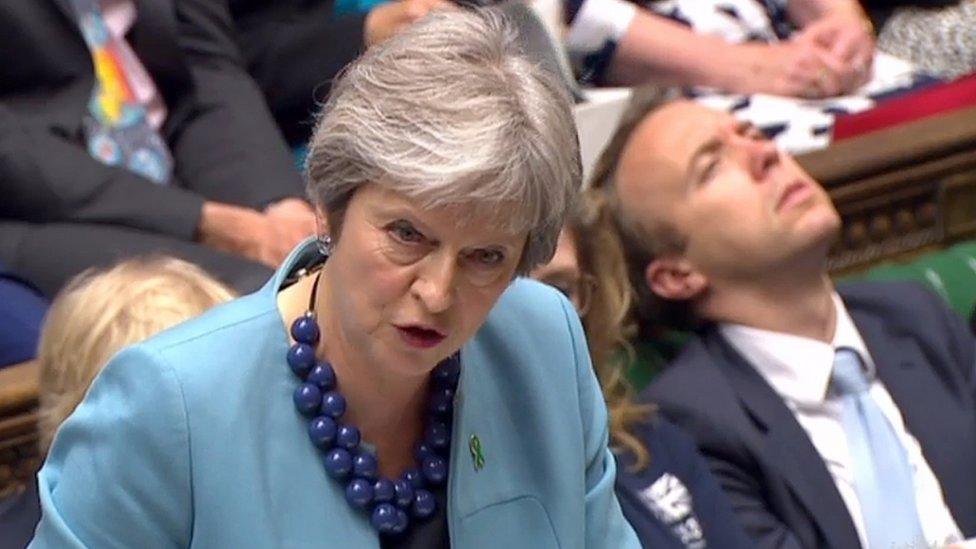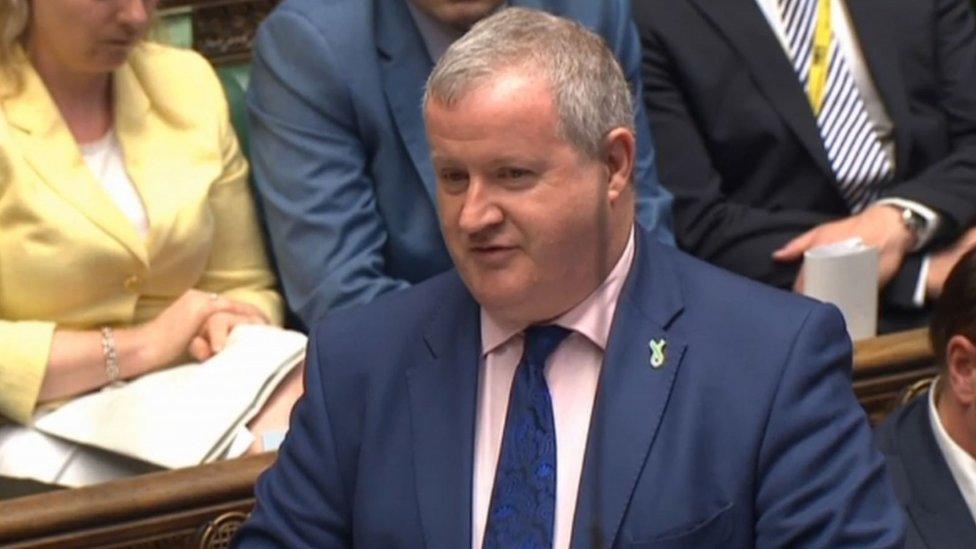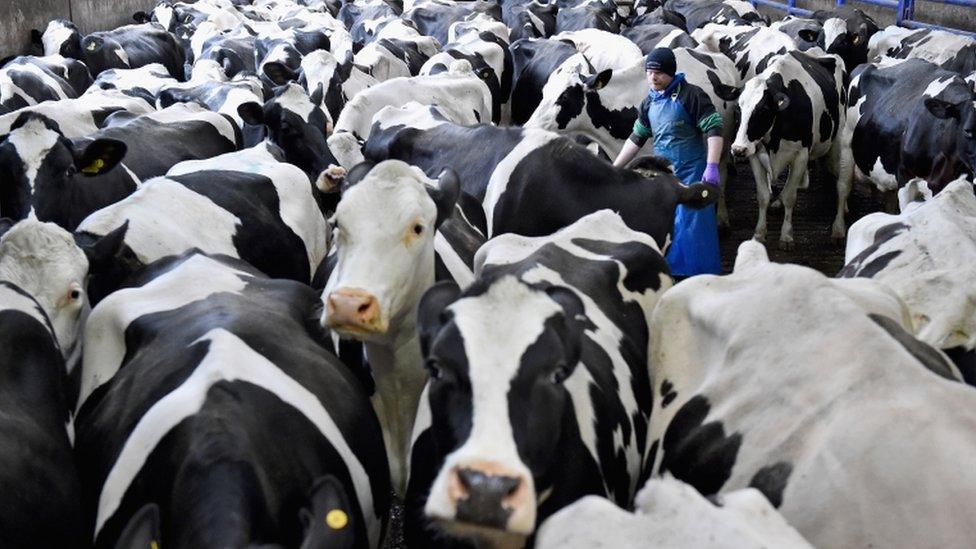Theresa May says Brexit bill 'a sensible way forward'
- Published

The prime minister has insisted her Brexit bill is a "sensible way forward" despite the Scottish Parliament refusing to grant its consent.
MSPs voted by 93 to 30 to reject the bill over concerns it will restrict Holyrood's powers in some policy areas.
Theresa May told the House of Commons she was disappointed by the vote.
But she insisted it was "right that we go ahead with measures that not only respect devolution but also ensure the integrity of our common market".
The Holyrood vote was held after months of talks between the Scottish and UK governments failed to reach an agreement over the EU Withdrawal Bill - although the Welsh government dropped its opposition after striking a deal.
It saw the SNP joined by Labour, the Greens and Liberal Democrats in opposing the bill, with only the Conservatives in favour of granting consent.
Westminster now has the option of introducing the Withdrawal Bill against the wishes of the Scottish Parliament - although doing so would be politically problematic for Mrs May and her government.
The SNP's leader at Westminster, Ian Blackford, said the vote showed the Conservatives were "isolated and out of touch with the people of Scotland".
Speaking at Prime Minister's Questions, he challenged Mrs May to "respect the will of the Scottish Parliament and work with the Scottish government to amend the Withdrawal Bill".
Mr Blackford added: "It is very simple - the Tories are seeking to veto the democratic wishes of the Scottish Parliament. This is absolutely unprecedented.
"If this government forces through the legislation without the consent of the Scottish Parliament, the prime minister will be doing so in the full knowledge that they are breaking the 20-year-old devolution settlement."

Mr Blackford challenged the prime minister to respect the Holyrood vote and find a solution to the disagreement
Mrs May said the bill meant the devolved governments would still to be able to make all the decisions they can currently make after Brexit.
She added: "What the bill does is set out a mechanism that respects devolution and lets us maintain the integrity of our own common market as we work out the long-terms solutions.
"I think this is a reasonable, a sensible way forward - the Welsh government, and now the Welsh Assembly including Labour and Liberal Democrat members of the Welsh Assembly, agree with that.
"I think it is right that we go ahead with measures that not only respect devolution but also ensure the integrity of our common market."
'Fundamental misunderstanding'
Mrs May said her government was "disappointed that the Scottish Parliament has not granted its consent" and insisted it was still "working hard to find a way through".
But referring to Mr Blackford, she said: "When he talks about the democratic will, it was the democratic will of the Scottish people to remain in the United Kingdom."
The exchange in the Commons came after Scottish Secretary David Mundell claimed that some MSPs appeared to have a "fundamental misunderstanding" of the Brexit legislation.
And he said Scottish government proposals for resolving the "very technical issue which has become the focal point of an unnecessary row" would effectively allow Holyrood to veto measures which applied across the whole of the UK.
Mr Mundell said Brexit would leave the Scottish Parliament with more powers than it currently has, and pointed out it had recently been handed control over income tax and the welfare system.
He added: "So the idea that in the context of these huge changes in the balance of powers between Westminster and Holyrood somehow the UK government would be out there waiting to grab control of crofting is just ridiculous."
What is the "power grab" row about?

The Scottish government says the Brexit bill would give Westminster "a totally free hand" to pass laws that directly affect Scottish farmers
The row centres on a set of powers which are technically devolved to the Scottish Parliament, but which are currently decided at Brussels to ensure rules and regulations are the same across the EU.
The UK government has published proposals that would see the "vast majority" of these 158 powers go directly to the Scottish Parliament after Brexit.
But it has also named 24 areas where it wants to retain power temporarily in the wake of Britain's exit from the EU, including in areas such as agriculture, fisheries and food labelling.
It says the "temporary restriction" on the devolved governments passing laws in these areas was needed "to help ensure an orderly departure from EU law" and allow the same rules to remain in place across the whole of the UK.
The Scottish government agrees that these UK-wide frameworks are needed.
But it is concerned that the UK government would only need to "consult" Holyrood over any changes it wants to make to them, rather than seeking its "consent".
Scottish Brexit minister Michael Russell said it would give UK ministers "a totally free hand to pass legislation that would directly affect Scotland's fishing industry, our farmers, our environment, our public sector procurement rules, the safe use of chemicals and our food safety," while Holyrood's "hands would be tied".
The Scottish government produced its own alternative Brexit legislation, which was passed by MSPs in March but is currently subject to a legal challenge by the UK government.